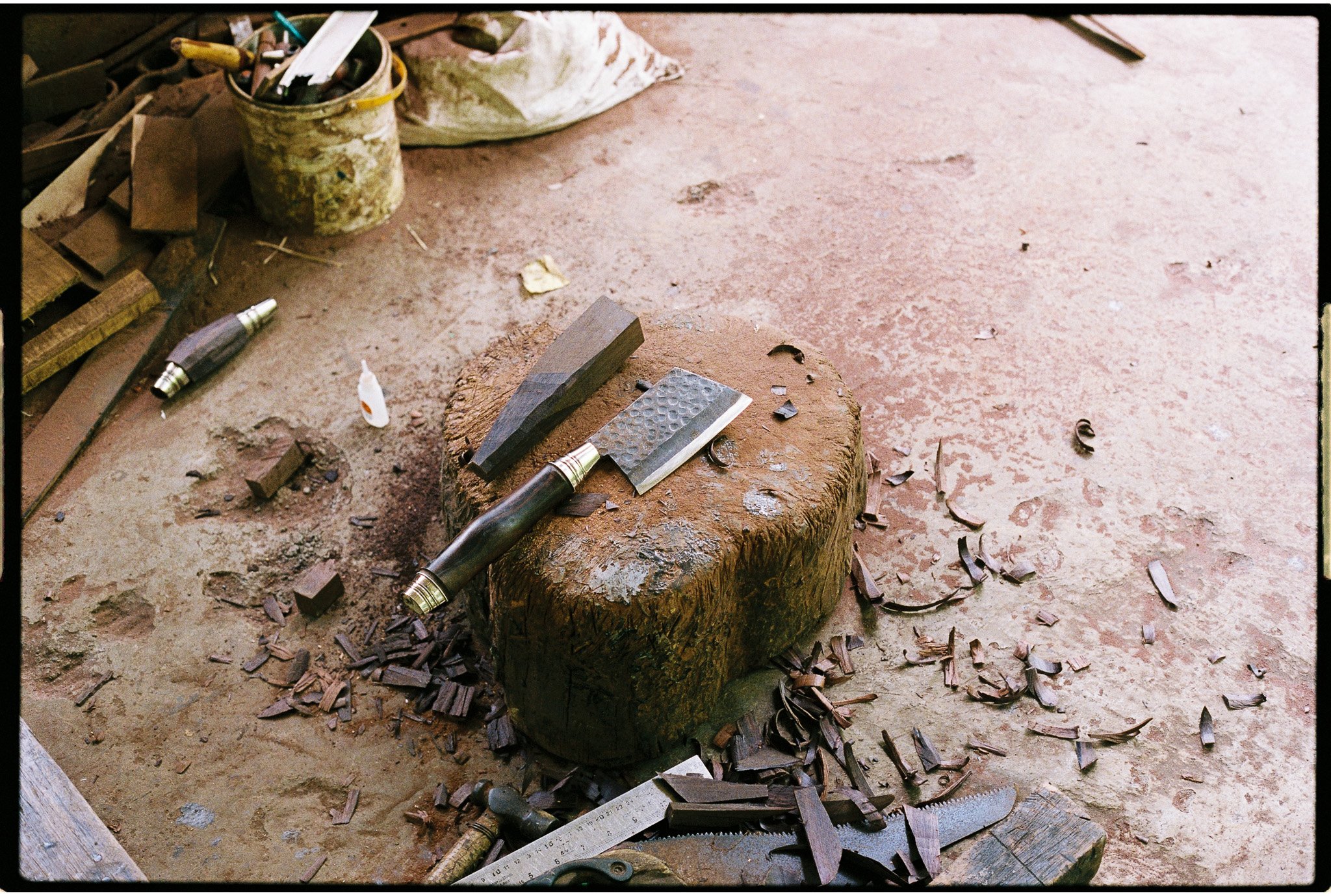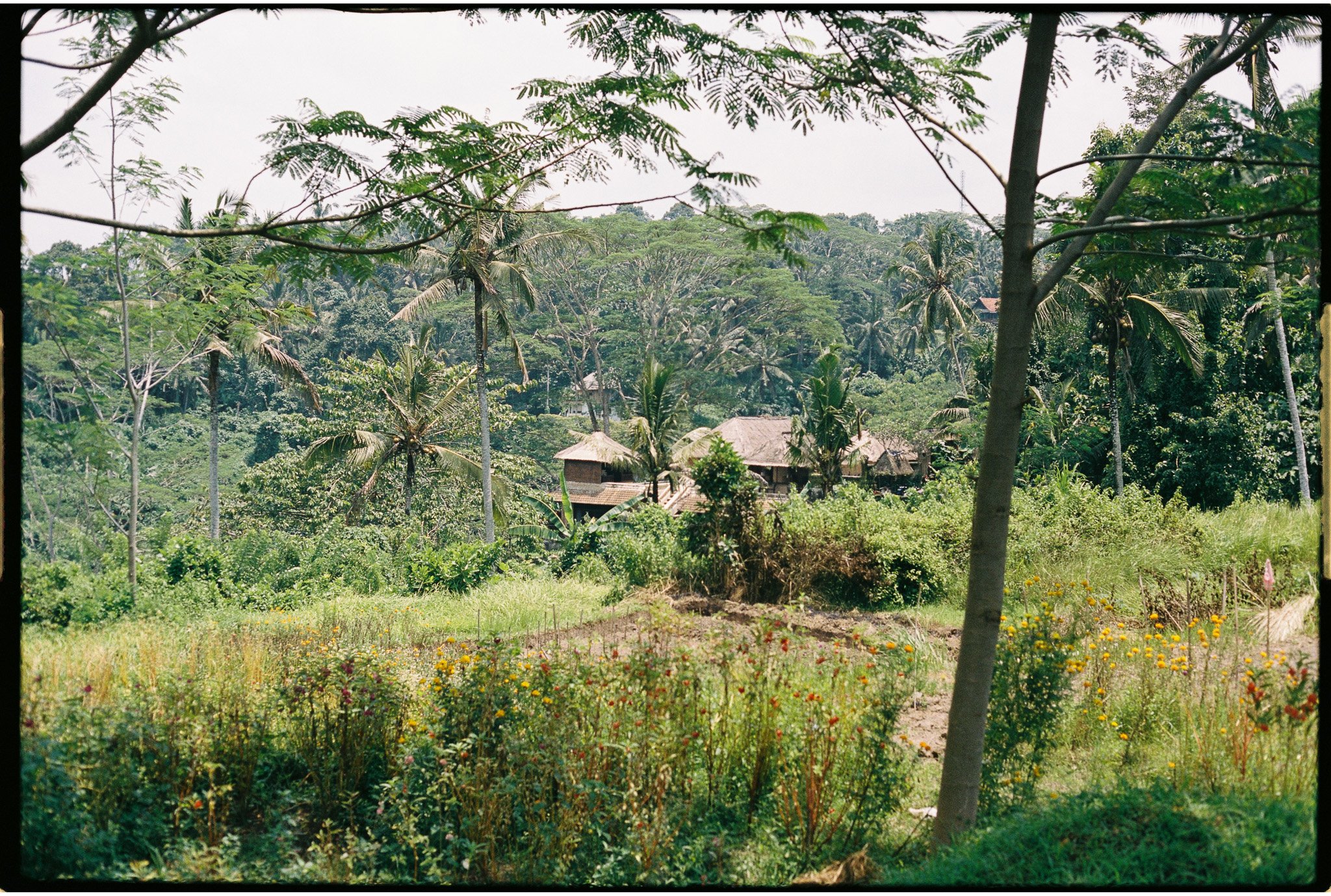 Image 1 of 12
Image 1 of 12

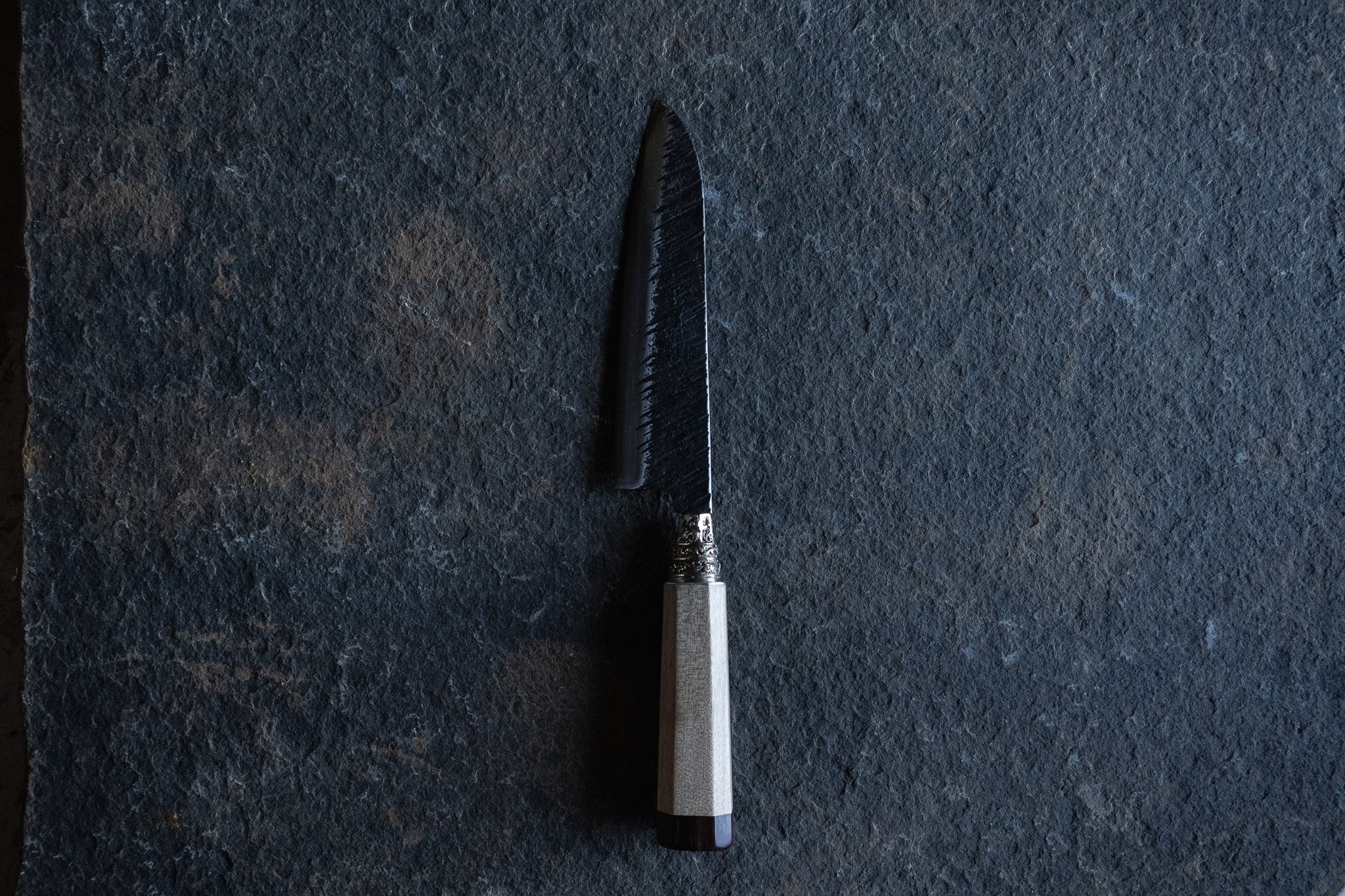 Image 2 of 12
Image 2 of 12

 Image 3 of 12
Image 3 of 12

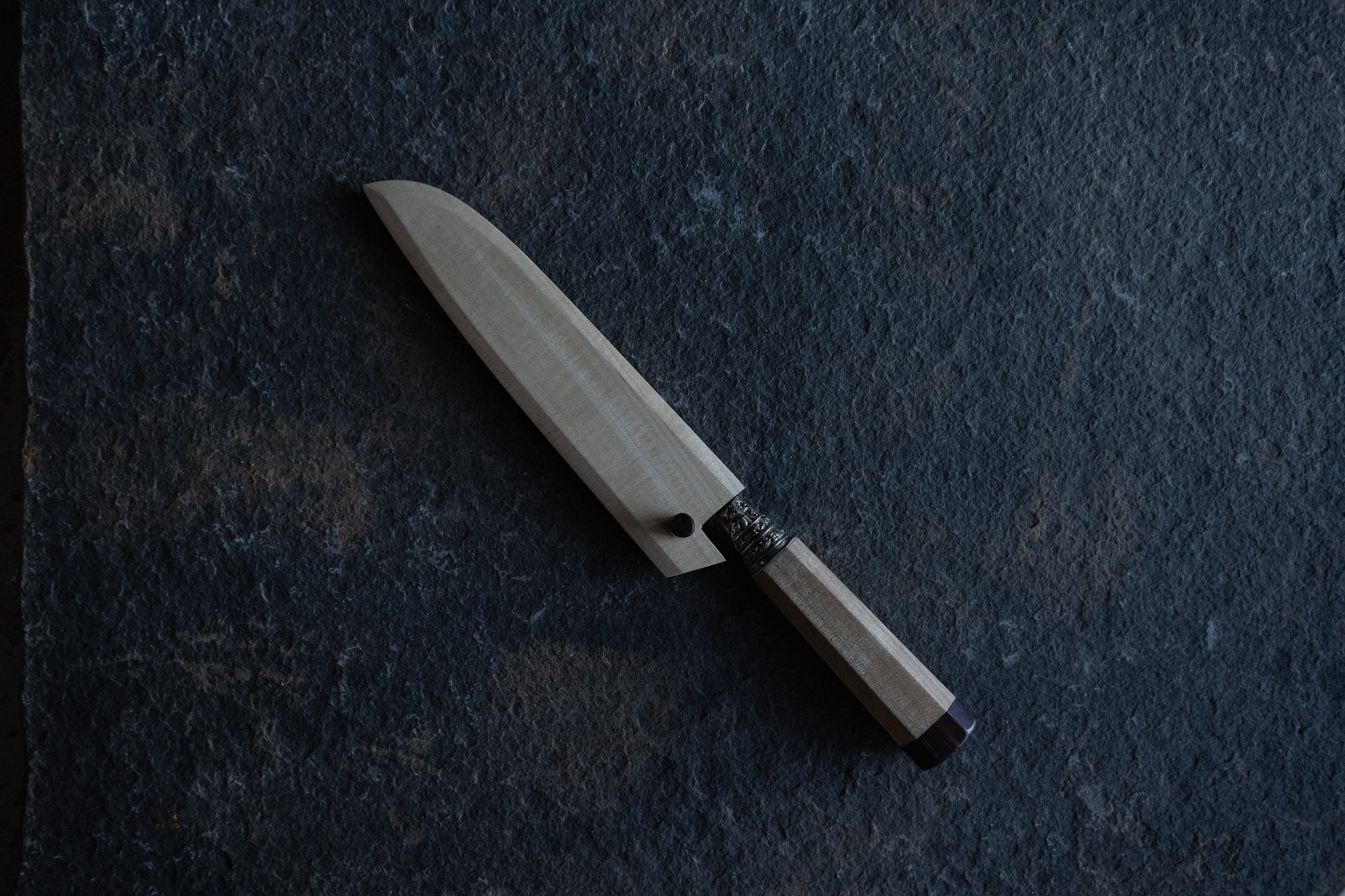 Image 4 of 12
Image 4 of 12

 Image 5 of 12
Image 5 of 12

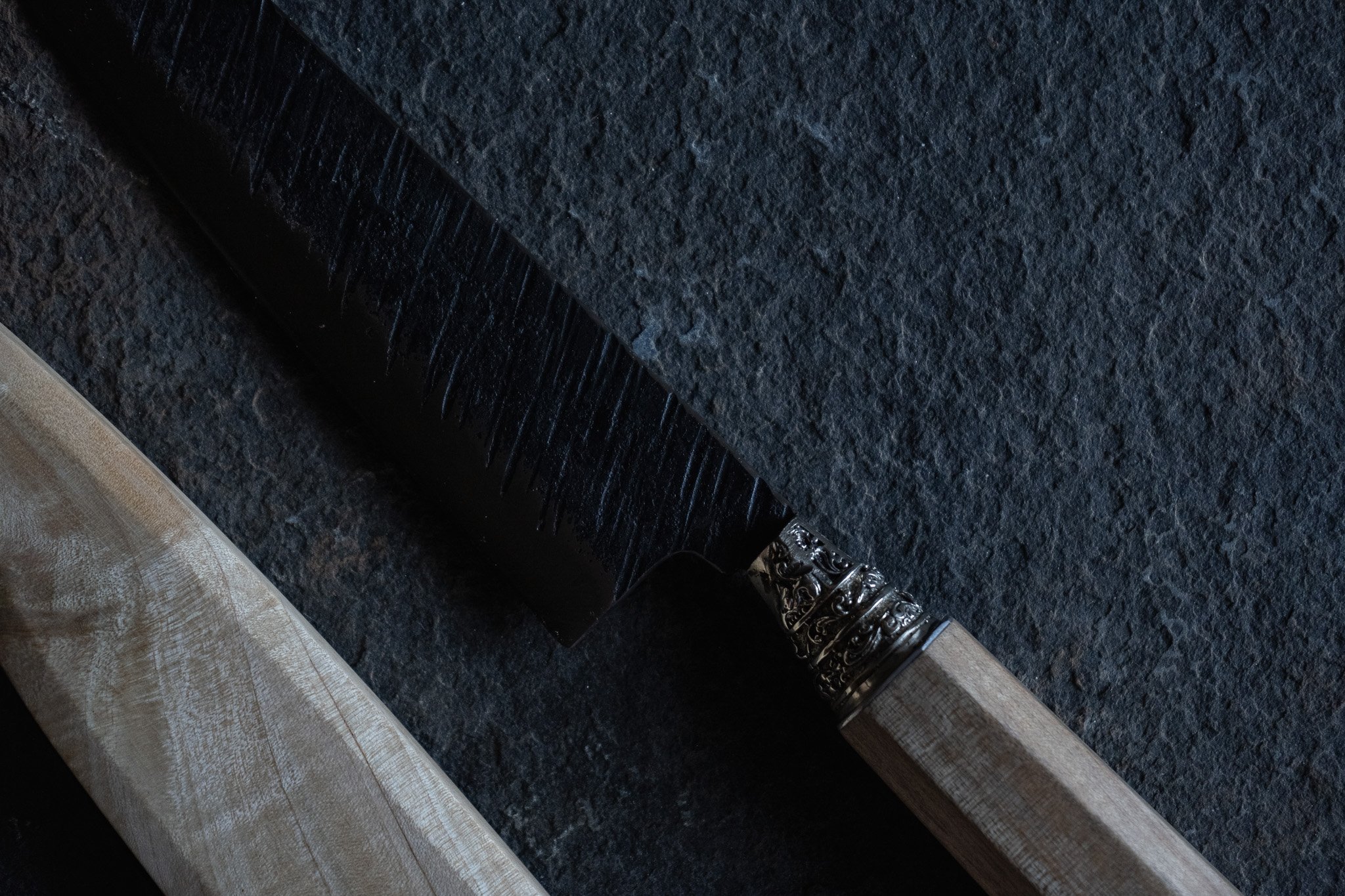 Image 6 of 12
Image 6 of 12

 Image 7 of 12
Image 7 of 12

 Image 8 of 12
Image 8 of 12

 Image 9 of 12
Image 9 of 12

 Image 10 of 12
Image 10 of 12

 Image 11 of 12
Image 11 of 12

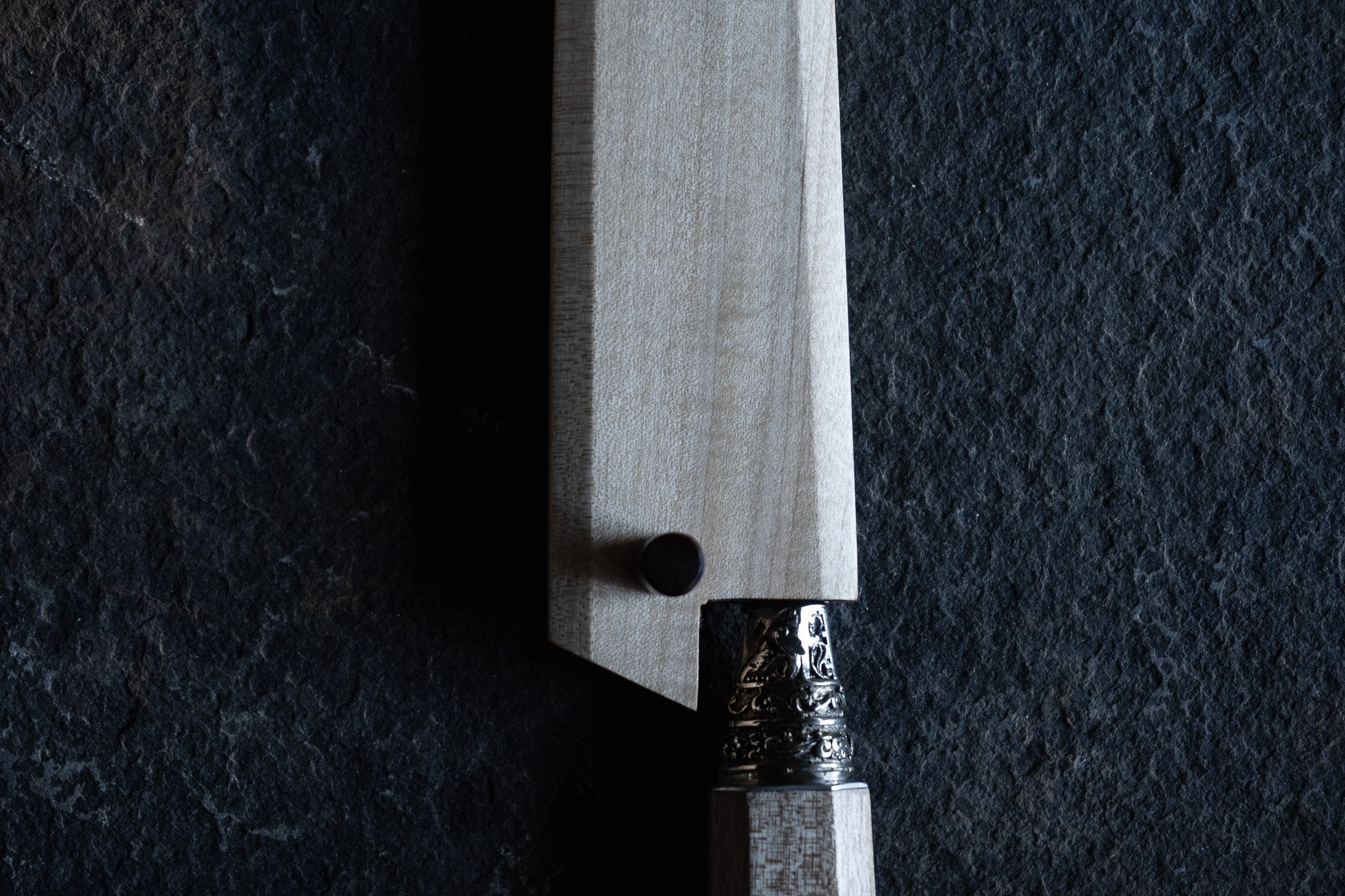 Image 12 of 12
Image 12 of 12













Gyuto Knife w/ cover - II
Hand-forged gyoto knife made by fourth generation Balinese blacksmith, Nova Diatmika. Nova uses a traditional forge, fuelled by bamboo charcoal to make the blade and he learnt the craft from his father.
Nova’s pieces are inspired by a blend of Balinese and Japanese traditions.
Blade length - 16 cm | 6.3 in
Handle length - 13.5 cm | 5.3 in
Knife weight - 150 g | 5.3 oz
Hand-forged gyoto knife made by fourth generation Balinese blacksmith, Nova Diatmika. Nova uses a traditional forge, fuelled by bamboo charcoal to make the blade and he learnt the craft from his father.
Nova’s pieces are inspired by a blend of Balinese and Japanese traditions.
Blade length - 16 cm | 6.3 in
Handle length - 13.5 cm | 5.3 in
Knife weight - 150 g | 5.3 oz
Hand-forged gyoto knife made by fourth generation Balinese blacksmith, Nova Diatmika. Nova uses a traditional forge, fuelled by bamboo charcoal to make the blade and he learnt the craft from his father.
Nova’s pieces are inspired by a blend of Balinese and Japanese traditions.
Blade length - 16 cm | 6.3 in
Handle length - 13.5 cm | 5.3 in
Knife weight - 150 g | 5.3 oz
MATERIALS
Blade - 1075 carbon steel, hand-forged and hammered.
Handle - Indian prickly ash, Balinese rosewood and Balinese alpacka silver carving.
Cover - Indian prickly ash, ebony wood pin.
CARE
Clean after use with eco detergent and water, wipe dry instantly to prevent rusting.
Wipe the blade with coconut or olive oil once dried to prevent rusting.
Do not put in dishwasher as it could damage the handle.
The knife will develop a patina over time due to the oxidation of the carbon steel;
This is normal and is the development of the knifes own personality.
We recommend using the knife on a wooden cutting board.
We recommend storing on a magnetic wall rack, as opposed to in a drawer.
SHARPENING
Carbon steel knives hold their sharpness for longer than stainless steel.
If your knife gets blunt, you can run the edge along a leather strop or sharpen with a whetstone.
A pull through sharpener will also work. If you’re not experienced, take your knife to a professional sharpener to avoid damaging the blade.
Nova forging a knife blade in his workshop that is within his families home complex in Bali, Indonesia.




